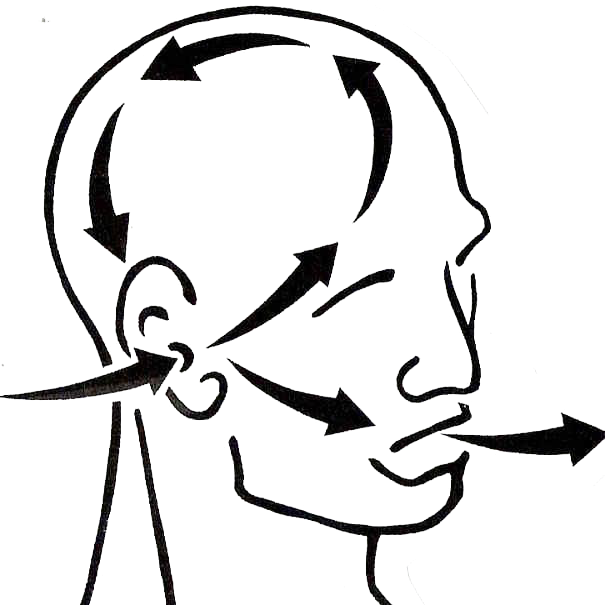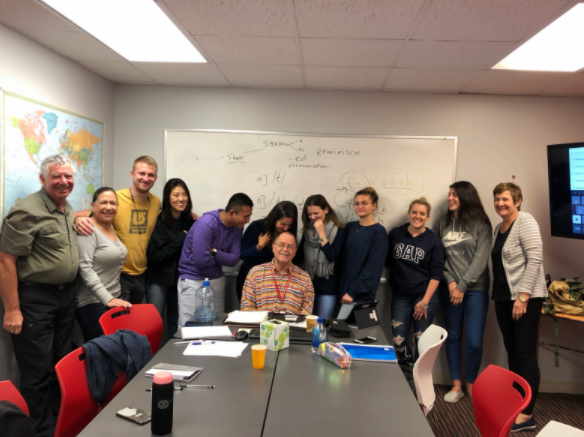By: Peter Maximilian HM
Well over 60 years ago, on the tin Island Bangka, in the archipelago of Indonesia, I was birthed in a city named Pangkalpinang. Specifically, it was November 27, 1954.
I was the third of 3 siblings. This was post WWII and Indonesia after 300 years of being held hostage by the Dutch and then controlled by the Japanese during the war, finally, along with many other colonized nations, the world’s largest archipelago was able to establish its own identity; free-from-colonial rule.
Our parents were also born in Indonesia. My father was of 100% German descent; his parents had come from Germany, and my mother was of Indonesian descent, which included heritages from China, Morocco, and Holland.
Linguistically, I was born into the Dutch and German languages, as well as one of the local languages called Maleis.
In the early part of 1957, not long after my 2nd birthday, our family of 5 moved to Kirkuk, Iraq where we were situated for 2 years. My siblings, Paul and Ingrid, were of school age and attended a French elementary school. I was too young to attend any school and remained most of the time inside our walled fortress along with my mom and a bodyguard. During our stay there, two revolutionary movements manifested themselves. My father worked as a civil engineer and helped build Iraqi infrastructure for US companies. From Iraq we moved to Holland, aka The Netherlands, as in The Low Lands.
The dominant language in our home was and continued to be Dutch whilst we lived together as a family. Of course, we also spoke whatever was necessary, as dictated by the immediate environment. Grades 1-7 were spent in Dutch curricula (4 years in Holland and 3 in Aruba, yet another Dutch colony). In Holland we principally communicated in Dutch and because my father worked in Germany (Holland would not give him a job), we also used German occasionally.
By the time we moved to Aruba, age 10, I had been in the following linguistic environments: Maleis, Dutch, German, and Arabic. Of course, the principal language throughout the 10 years had been Dutch. In Aruba I had to acquire Papiamento, the beautiful language of the ABC islands. But because it was still a colony, the then-colonized people whose native language is Papiamento had to receive their education in the Dutch language. In the classroom Dutch only, outside Papiamento, mostly, and Dutch as well. That was the situation in Oranjestad where we lived for 3 years.
At age 13 we left Aruba for another Caribbean island, from desert to tropics, named Puerto Rico. Yet another colonized culture. Now, after 7 years of being formally schooled, educated, and indoctrinated in the Dutch Language, the means of communication in the classroom was English, which, naturally I did not speak. This was at a private Methodist School in Isla Verde, San Juan, PR. We had chapel daily. I got schooled in a form of Christianity. Away from the premises of the school and outside of the classroom, on the basketball courts, almost everything was in Spanish. And in the cultural mainstream of PR another form of Christianity called Catholicism was prevalent. But attendance was not mandatory.
Colonially, much was similar to the situation I had been in for the past 3 years prior to moving to PR. The main difference was that in Aruba formal schooling was in a language I was fluent in, and in PR, I did not speak the lingo of instruction. To top the challenges facing me, I took a test in English and somehow I skipped a grade, so I was the youngest in the 9th grade, did not speak the language, and deeply immersed into a culture of American football, basketball, and baseball realities. There were cheerleaders. In absolute contrast, the sport I had lived in daily prior to PR was soccer, the real football.
Furthermore, outside in the predominant culture, only Spanish was spoken, which was a language I didn’t speak at the time I arrived in PR. But, like Papiamento, acquiring and picking it up was a piece of cake. And the reason that acquiring and learning these languages was easy for me “is” that they happened via informal, non-academic, and culturally enriched environments. English, on the other hand, was extremely challenging because I was compelled to compete academically (which I had been real good at in Dutch) from the get-go. There was no ESL immersion program or tutorial assistance available. My mom had to speak with the principal to get me excused from taking Biology because the BIG textbook in English and scientific terminology was killing me. I think she made some kinda deal or offer that the principal just couldn’t refuse.
Meanwhile, my level of proficiency increased rapidly; after all, necessity is the Mother of Invention. By grade 11, I was more prepared linguistically but still hampered academically in some courses: Especially the English literature and grammar classes were excruciatingly painful. Everybody but me was fluent in English. I got laughed at a lot. In the process of acquiring Spanish, no one laughed and everyone thought from the beginning that I spoke Spanish. And that was completely due to Papiamento. Also, there was no formally academic pressure involved.
Grade 12 was completed at Hawthorne High School in Hawthorne, California. After 3 years of acquiring, learning, and studying in English I had become fluent and it showed in all of the classes I took. I was 17 when I graduated High School and started College.
Due to the difficulties I had encountered with American culture and its English dialects, I developed a type of motivation that propelled me to master English rather than be mastered by it. The Spanish language had already embedded itself profoundly without the pressure I had been receiving via the English language and consequently I continued studying “in” Spanish and went on to receive a B.A. in Languages & Linguistics (with a focus on Spanish and German); I subsequently pursued and completed an M.A. program in the Spanish Language & Literature (with an added concentration in Applied Linguistics).
By the time I completed my formal educational journey, I had been teaching in Spanish for 7 years. I continued my role as a Spanish teacher for another 3 years and then I switched to ESOL (ESL/EFL). Of course, over the years I still taught in Spanish as well but my main focus became English as a Foreign Language.
In the year 1998, via the University of CA in Riverside, I became a facilitator in respect to teaching and training those who studied in the TESOL program (to become teachers of ESOL) and in the State’s CLAD program (the former program is for those getting a Master’s in TESOL, and the latter program was for existing K-12 educators needing an ESOL endorsement in order to keep their jobs in the public school sector).
In April of 2000, I moved back to Florida and established the LAT-TESOL Course for International TESL/TEFL Certification. Over the past 20 years, said course has been vetted by 2 accrediting agencies in the USA and by numerous recruiting agencies worldwide. It was also vetted and approved by the Chinese Embassy in D.C.
For more information and details in respect to the LAT-TESOL Course, please don’t hesitate to contact me.



